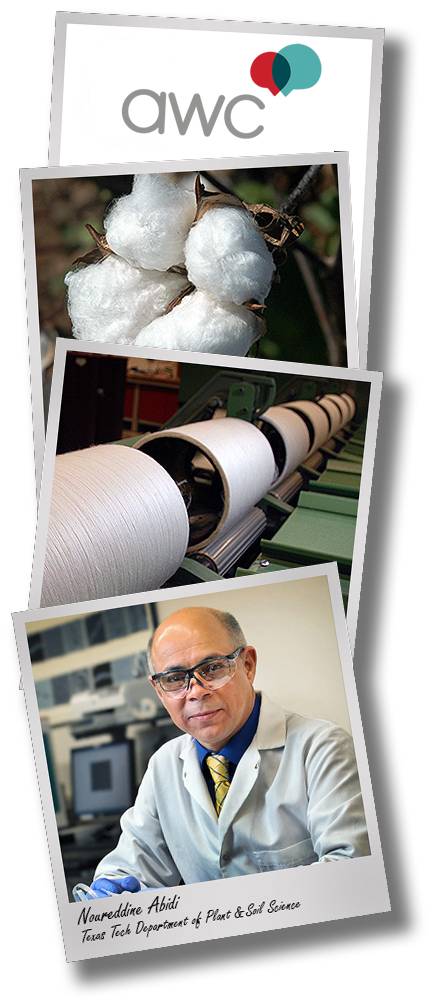Fiber & Biopolymer Research Institute recognized with WIC Headliner Award
By: Norman Martin
Texas Tech's Fiber & Biopolymer Research Institute has been selected to receive a "2019 Headliner Award" from the Lubbock Professional Chapter of the Association for Women in Communications for their research and innovation in the indigo dyeing process. The cutting-edge foam-dying method reduces waste and allows mills to produce much smaller quantities than conventional dyeing processes, when desired.

"Headliner Awards are presented to people or organizations who've brought widespread positive attention to the Lubbock area," said Britta Tye, co-chair of the AWC Celebrity Luncheon. "The innovative indigo dyeing process the TTU Biopolymer Institute has developed will undoubtedly have far-reaching effects."
The WIC award was formally presented at the group's 35th Annual Celebrity Luncheon on Tuesday (April 9) at Lubbock Memorial Civic Center.
"The foam dyeing of cotton yarns is water-saving, environmentally friendly technology that is increasingly used worldwide," said Noureddine Abidi, a professor with Tech's Department of Plant and Soil Science and FBRI's managing director. "The indigo foam dyeing technology developed at Texas Tech with grant from the Walmart U.S. Manufacturing Innovation Fund was licensed to Indigo Mill Designs."
In recent years a FBRI research team has focused on improving the safety and efficiency of indigo dying of cotton yarns. Indigo, the unique colorant for blue jeans, is a non-toxic, sustainable dye, but current dyeing processes require large amounts of time and space, use large amounts of sulfur-reducing compounds, produce large amounts of wastewater and use large amounts of energy.
VIDEO: Texas Tech FBRI's 'One of a Kind' Technology
Under current methods, indigo is insoluble until it undergoes a chemical change known as reduction, making it soluble in water and able to penetrate cotton yarns. But when indigo is removed from the dyebath, it combines with oxygen in the air and instantaneously reverts back to its oxidized, insoluble form that also leaves behind indigo on the surface that has to be washed, and current technology leaves behind a tremendous amount of wastewater, sulfur-reducing agents and other chemicals.
Foam-dyeing reduces chemical usage, while achieving the same or better dye quality compared to conventional processes in addition to net reductions of water and energy usage of more than 90 percent. The foam-dying process also will allow mills to produce much smaller quantities than conventional dyeing processes, when desired.
Located some six miles east of the main campus, Tech's FBRI occupies 110,000 square-feet of space allowing Tech researchers to conduct testing and evaluation from the raw fiber stage through the finished textile product. Facilities include a multimedia classroom and conference room, biopolymer research laboratory, cotton phenomics laboratory, cotton ginning laboratory, and cotton processing laboratory (spinning and weaving).
CONTACT: Noureddine Abidi, Managing Director, Fiber and Biopolymer Research Institute, Department of Plant and Soil Science, Texas Tech University at (806) 834-1221 or noureddine.abidi@ttu.edu
0409NM19
Davis College NewsCenter
-
Address
P.O. Box 42123, Lubbock, Texas 79409-2123, Dean's Office Location:Goddard Building, Room 108 -
Phone
(806)742-2808 -
Email
kris.allen@ttu.edu
